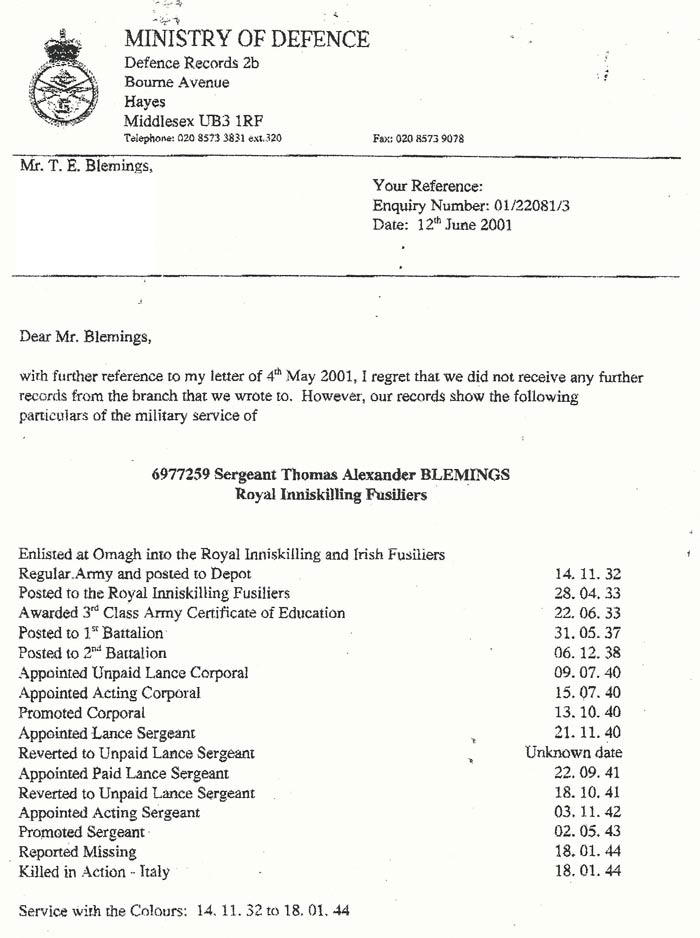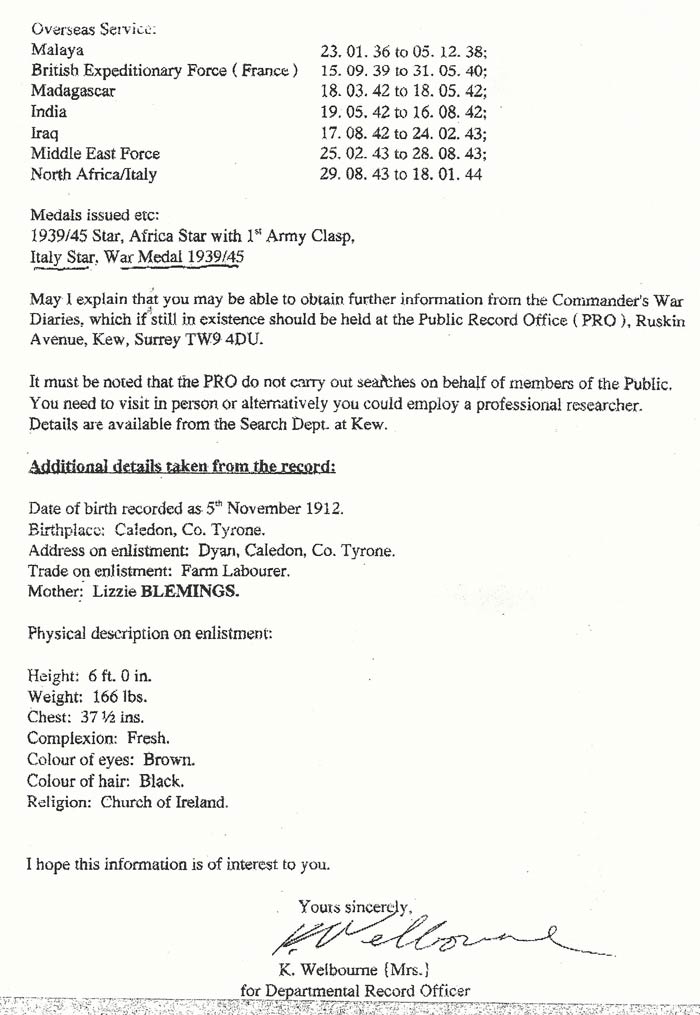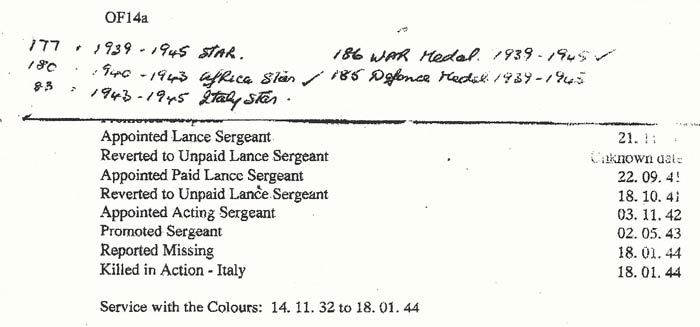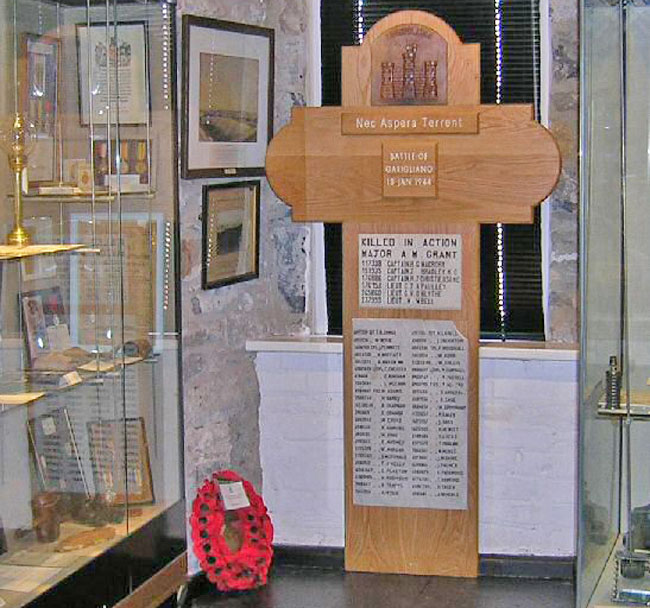| Thomas Alexander Blemmings was the youngest son of Robert and Elizabeth Blemings. Robert Blemings and Elizabeth Huston were married on 19th September 1900 in the district of Dungannon.
|
| Thomas Blemings was born in Dyan, Caledon County Tyrone on 5th September 1909. He was one of at least five children.
|
| Locally, the family name is Blemmings. The CWGC record it as Blemings.
|
| The 1911 census shows his father to be a farm labourer. The family were living in Kilmore, Minterburn, County Tyrone. His father was a farm labourer.
|
| Known family: Robert Blemings, Elizabeth Blemings, Elizabeth Blemings (born 12th July 1901), Robert Blemings (born 8th March 1903), Margaret Blemings (born 24th April 1906), Thomas Alexander Blemings (born 5th September 1909), Sarah Blemings (born 25th October 1912).
|
| Thomas Blemmings enlisted in Omagh into the Royal Inniskilling and Irish Fusiliers on 14th November 1932, aged about 22. He was working as a farm labourer.
|
| From 1936 to 1938 he served in Malaya.
|
| At the start of WW2 he was serving with the 2nd Battalion of the Royal Inniskilling Fusiliers and went with unit to France.
|

|

|

|
| On 9th July 1940 he was appointed Lance Corporal. A week later he was made acting Corporal.
|
| A month later he was appointed Lance Sergeant.
|
| Lance Sergeant Blemings arrived in Madagascar in March 1942. After two months they moved on to India.
|
| In August 1942 they arrived in Iraq. In November 1942 he was appointed Acting Sergeant.
|
| In February 1943 they became part of the Middle East Force. In May 1943 he was promoted to Sergeant.
|
| From August 1943 he served in North Africa and then Italy.
|
| By 1944, Sergeant Thomas Alexander Blemings was serving with the 2nd Battalion of the Royal Inniskilling Fusiliers in Italy.
|
| The 2nd Inniskillings took part in the Battle of Garigliano which began on 17 January 1944. Their task was to cross the river using boats, clear the bridgehead of enemy posts, and then, having waited for an artillery barrage, assault Massia Rossi farm and a German held feature on the German winter defensive position known as the Gustav Line, which stretched from the river Garigliano in the west to the Sangro in the east. Despite the care in preparing for the battle, several mishaps which might have led to disaster were rectified by skilful improvisation as the battle developed. The main problem at first was that the unit responsible failed to produce the boats for the Inniskillings by the correct time. A Company eventually crossed and, with very heavy casualties, attacked the farm which it captured at bayonet point. By 0530 on 18 January 1944 when the battalion was deployed for the next phase of the attack, an enemy shell struck Battalion Headquarters and caused many casualties. The attack, covered by a massive barrage, continued. By noon C Company had captured its objective on the Gustav line. The success of the Inniskillings attack resulted in an 800-metre breach in the enemy's defences. Various enemy counter attacks occurred in the early hours of 19 January, but, with heavy losses on both sides, the Inniskillings repulsed the Germans and secured their newly won positions.
|
| Sergeant Blemings was killed in action on 18th January 1944 in this engagement.
|
| Sergeant Thomas Blemings is one of a number of local men who are commemorated on the Garigliano Memorial, which is in Enniskillen Castle.
|

|
| The CWGC record Sergeant Thomas Blemmings as the son of Robert and Elizabeth Blemings of Dyan, County Tyrone, Northern Ireland.
|

|
